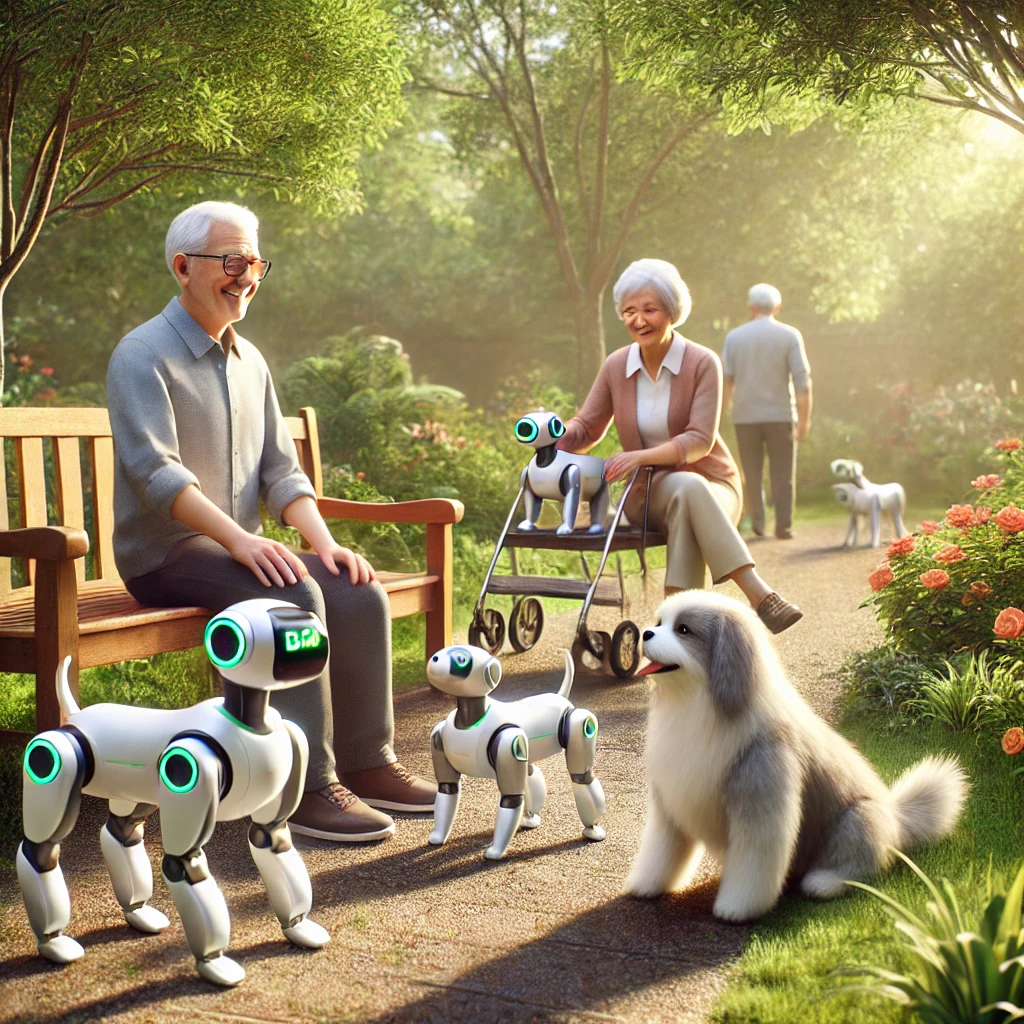What a surprise, right ? Actually, yes, robotic pets help to reduce loneliness in older adults. According to a study, robotic pets help reduce various mental illnesses, such as depression, anxiety and loneliness in communities of women older than 65.
Interaction with the robotic pets was described as an award-winning situation for participants. These pets brought them happiness and made them feel really special. In this same study, it was discovered that robotic pets were really a good alternative, because many old people are not really able and have some issues in caring for real ones.
During this research, some comparisons were made between at first when they started and in a follow-up visit after a month, and they discovered really significant changes in the participants’s mental health.
The mean baseline score for depression was 9.16 on a 15-point scale, which dropped to 5.29 at the 1-month mark. The mean anxiety score at baseline was 13.18, which fell to 7.33. Loneliness fell from 4.31 at baseline to 3.13 at the 1-month follow-up. Self-rated physical health rose from 1.44 at baseline to 1.73 during the study period.
A lot of them wanted to share this experience with other people they were aware that they needed it, but it wasn’t always easy to reach them, because not all of them were comfortable with the fact of meeting a totally stranger and unfamiliar person (the lead researcher of the study who was responsible of the follow-up visits).
The robots that were used in this experiment were not mobile, but they had the ability of mimicking the sound of living animals and reacting to touch and movement via sensors.
Technology is really good and fascinating for giving people these types of possibilities, but human interaction cannot be replaced.
Another similar study was done with war veterans, and it showed remarkably close results and benefits. In this one, researchers found that the pets provided participants the opportunity to meet new people and engage with them, helping them socialize.
Although pet robots can be a good option, especially in communal living environments or among vulnerable populations, they raise significant ethical concerns. In some cases, they can evoke distress or jealousy when elderly individuals form attachments to them or have to share them with others.
Additionally, some ethicists argue that pet robots may be infantilizing or deceptive, especially for individuals with cognitive impairments who might struggle to distinguish them from real animals.
Researchers of this study emphasize the need for practical ethical guidance, suggesting questions such as whether pet robots should be introduced explicitly as robots or presented as real companions, depending on user preferences and well-being.




